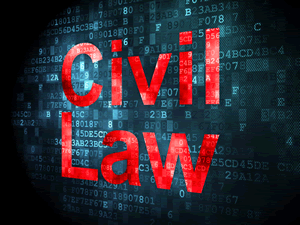Acquiescence
What does Acquiescence mean?
The Definition
Acquiescence is when a person stays silent when they know their rights are being infringed, while someone else speaks up for them on their behalf. When this person knowingly stands idly without saying anything in their own defense, or if they choose to remain quiet, they lose their rights to make any sort of claims against the person on the opposing side. This is basically the act of submitting or giving permission due to their silence or lack of action in their own defense.
Example of Acquiescence in a Court Setting
If one party gives legal notice to their opposing party, and that opposing party does not act on that notice within a reasonable or required time frame, the opposing party can lose their right to refute the legal notice. They can no longer challenge it, and no longer can make any sort of counterclaim.
For example, let's look at the Georgia v. South Carolina case held in the US Supreme Court back in 1990. There was an island on the Savannah River that would have normally been considered Georgia's property. However, South Carolina had been dumping sand on the island to join it as a peninsula on South Carolina soil, and South Carolina had also been levying property taxes on the island/peninsula for decades. Georgia knew about it, but never objected. In the case, Georgia raised the issue that according to the Treaty of Beaufort, all islands in the Savannah River were considered Georgia property. However, the supreme court said that Georgia was well aware that South Carolina had been charging property taxes and working to create the island as a peninsula, but they never said anything about it. Therefore, due to Georgia's own acquiescence, they lost the privileges of maintaining that island as their own, and is now considered South Carolina property.
Related Pages
Contract Law Attorneys near
Term of the Day
Undocumented immigrant
An undocumented immigrant is the term for a person residing in the United States without legal immigration status.
Category: Immigration


